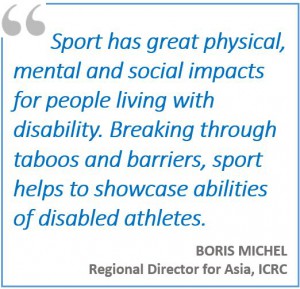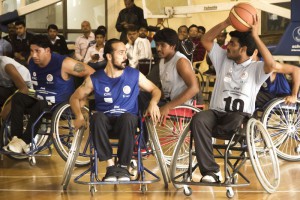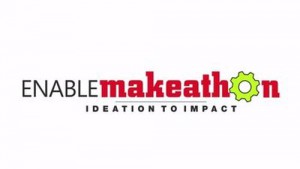Over 235,000 people received treatment at ICRC physical rehabilitation centres worldwide between January and September 2015. In Asia, the ICRC helps people with disabilities in 11 countries, accounting for CHF 33.5 million of the organization’s operational budget – a sum that will rise to more than CHF 39 million in 2016.
On 3 December, the ICRC marked the ‘International Day of People with Disabilities’. Here’s what our regional director Boris Michel explains about what is being done and why it matters.
What exactly does the ICRC do for people living with disability?
Globally, our rehabilitation projects aim to meet the basic rehabilitation needs of those disabled by conflict, landmines and unexploded ordinance. We also assist those who become physically disabled because they fail to receive treatment and vaccinations when health care services break down.
 Our projects help to bolster the physical rehabilitation services offered by each country. The primary aims are to make those services better, more accessible and more sustainable, so that people with disabilities can play an active role in every aspect of life.
Our projects help to bolster the physical rehabilitation services offered by each country. The primary aims are to make those services better, more accessible and more sustainable, so that people with disabilities can play an active role in every aspect of life.
In Asia, we run approximately 48 projects in 11 countries. Our programmes range from supporting government-led physical rehabilitation centres, to providing prostheses and orthoses, micro-credit loans and vocational training – all of which lead to greater social inclusion and opportunities for people of all abilities.
In Cambodia, we have nine micro-economic initiatives projects running in support of people living with disability (PWD). These range from dress-making, poultry, mushroom and fish farming to an innovative new scheme with a local NGO called Aziza’s Place. This involves solar powered mobile ‘tuk tuk’ coffee shops which offer people living with disabilities a sustainable and independent income.
Across Asia this year to September we have provided 14,679 prostheses, 53,540 orthoses, 3,653 wheelchairs and 15,022 pairs of crutches to PWDs, and appropriate physiotherapy for 114,664 people.
How does sport factor in the ICRC’s work?
Sport has great physical, mental and social impacts for people living with disability. Breaking through taboos and barriers, sport helps to showcase abilities of disabled athletes. To date we have developed wheelchair basketball teams in Afghanistan, India, Cambodia and the Philippines, cricket teams in Pakistan, Bangladesh and Afghanistan, and football teams in Afghanistan.
We are currently hosting an international T20 cricket tournament in Pakistan in which 12 teams will compete to be national champion.
Who are your partners in this work?
Partnerships are key to our work in Asia. In Cambodia, for example, we have worked with the Ministry of Social Affairs, Veterans & Youth Rehabilitation since 2010 in two rehabilitation centres and one factory producing prosthetic components, serving the needs of over 10,000 people. We run similar programmes in the Philippines with the Davao Jubilee Foundation, in Bangladesh with the Centre for the Rehabilitation of the Paralysed, as well as others in Pakistan, Afghanistan and in Myanmar.
Since 2008, UEFA.com Team of the Year has supported our work with landmine victims and disabled people in Afghanistan. This year, Real Madrid’s Toni Kroos and Cristiano Ronaldo presented donations totalling €100,000 before the start of the UEFA Champions League.
In addition to financial and technical support, we work alongside local Red Cross/Red Crescent Societies as well as regional bodies like the ASEAN Disability Forum to help raise awareness of issues affecting those living with disabilities.
Recently in Malaysia, we hosted an exhibition wheelchair basketball match involving players from ICRC-supported centres in Cambodia. We were pleased to partner with the Ministry of Women in this event, helping to raise awareness of issues affecting those living with disability.
As needs evolve and competition for funds increases globally, we have to look for new partners and new ways to help those living with disabilities.
In India, we recently launched the ‘Enable Makeathon’ – a challenge to designers, engineers and entrepreneurs to come together to help develop affordable assistive devices for people living with disabilities in rural areas.
We’re pleased to be working with established partners on this exciting new project. These include the Indian Institute of Technology Madras, Swissnex India, the Indian Institute of Management Bangalore and the Association of People with Disability, along with the support of the Accessible India Campaign.



